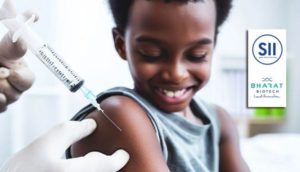
In a significant stride forward in the battle against malaria, the World Health Organization (WHO) has endorsed a cost-effective malaria vaccine, developed by the University of Oxford. This groundbreaking vaccine, known as R21, marks a major advance in the fight against one of the deadliest childhood diseases globally.
Malaria has long been a pervasive and devastating global health issue, claiming the lives of predominantly infants and young children. The parasite responsible for the disease, transmitted by blood-sucking mosquitoes, has proven highly adaptable, making it challenging to develop effective vaccines.
The WHO’s recommendation for the R21 vaccine follows its backing of the first-ever malaria vaccine, RTS,S, by GSK, just two years ago. Both vaccines have shown comparable effectiveness in preventing malaria, but the key distinction lies in scalability.
The University of Oxford’s R21 vaccine can be produced on a massive scale, with agreements already in place to manufacture over 100 million doses annually. This is in stark contrast to RTS,S, of which only 18 million doses are currently available. The Serum Institute of India, the world’s largest vaccine manufacturer, is set to produce the R21 vaccine, potentially scaling up to 200 million doses per year.
Another advantage of the R21 vaccine is its affordability, with each dose costing between $2 to $4, approximately half the price of RTS,S. Four doses are required per person, making it a cost-effective option for widespread deployment.
Both vaccines employ similar technologies and target the same stage of the malaria parasite’s lifecycle. However, the R21 vaccine is more straightforward to manufacture, requiring a smaller dose and a simpler adjuvant to stimulate the immune system.
Malaria continues to be a significant health crisis, with 247 million cases and 619,000 deaths reported in 2021, primarily affecting children under five years old, and over 95% of cases concentrated in Africa.
Dr. Matshidiso Moeti, the WHO Regional Director for Africa, emphasized the potential of the R21 vaccine to address the immense demand-and-supply gap in malaria prevention. When widely distributed, these two vaccines have the potential to save hundreds of thousands of young lives.
Although the R21 vaccine has shown 75% effectiveness in areas where malaria is seasonal, its efficacy is lower in regions where the disease is present year-round. Nevertheless, experts remain optimistic about its life-saving potential.
Professor Sir Adrian Hill, Director of the Jenner Institute in Oxford, where the R21 vaccine was developed, stated that the vaccine is not only easily deployable but also cost-effective and ready for distribution where it is needed most, potentially saving hundreds of thousands of lives each year.
Gareth Jenkins from Malaria No More UK stressed the importance of continued global funding for malaria eradication efforts, especially as malaria deaths increased during the pandemic, underscoring the need for new tools to combat this persistent threat.
 GhArticles.com Every News in Detail
GhArticles.com Every News in Detail



